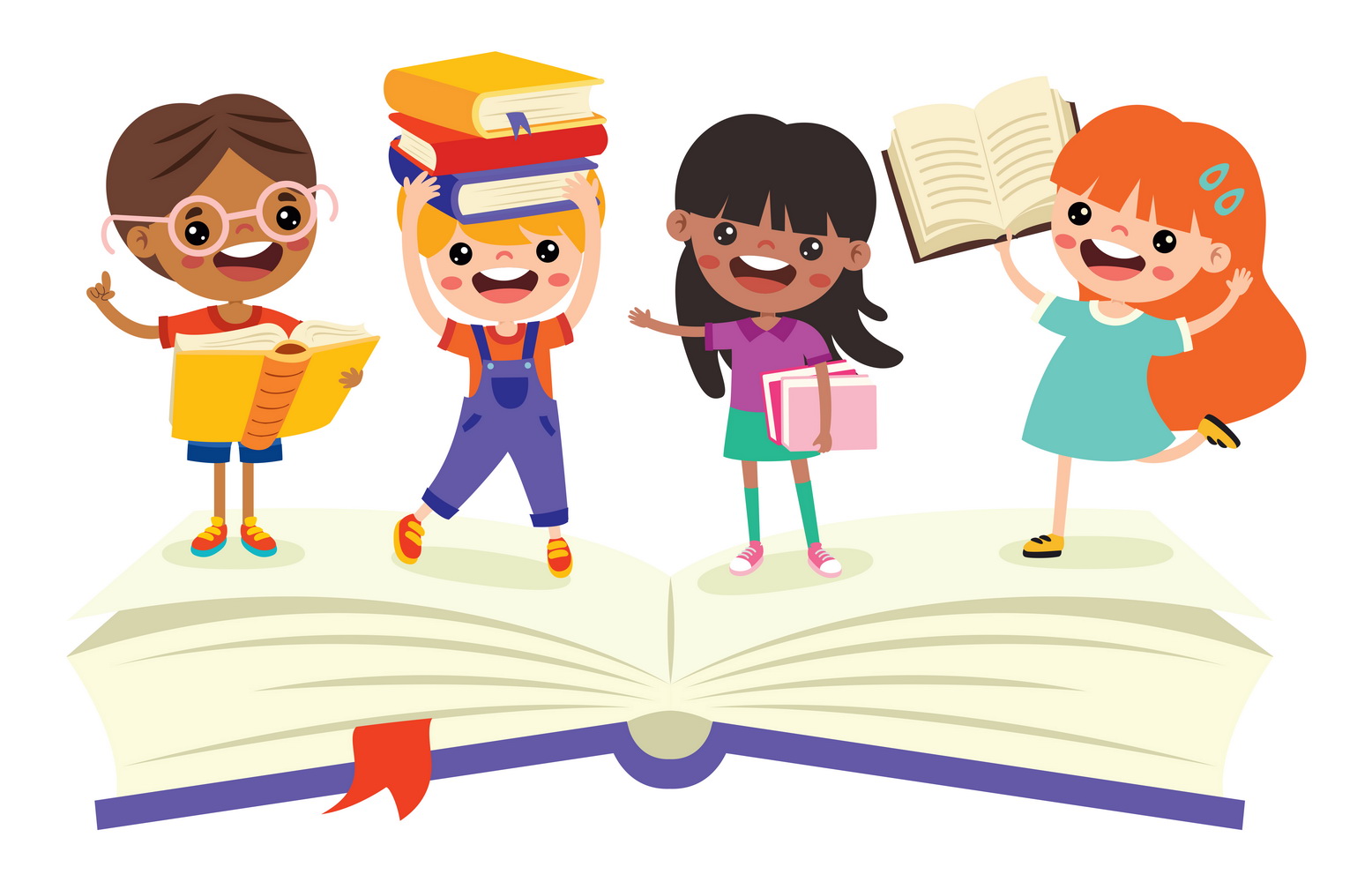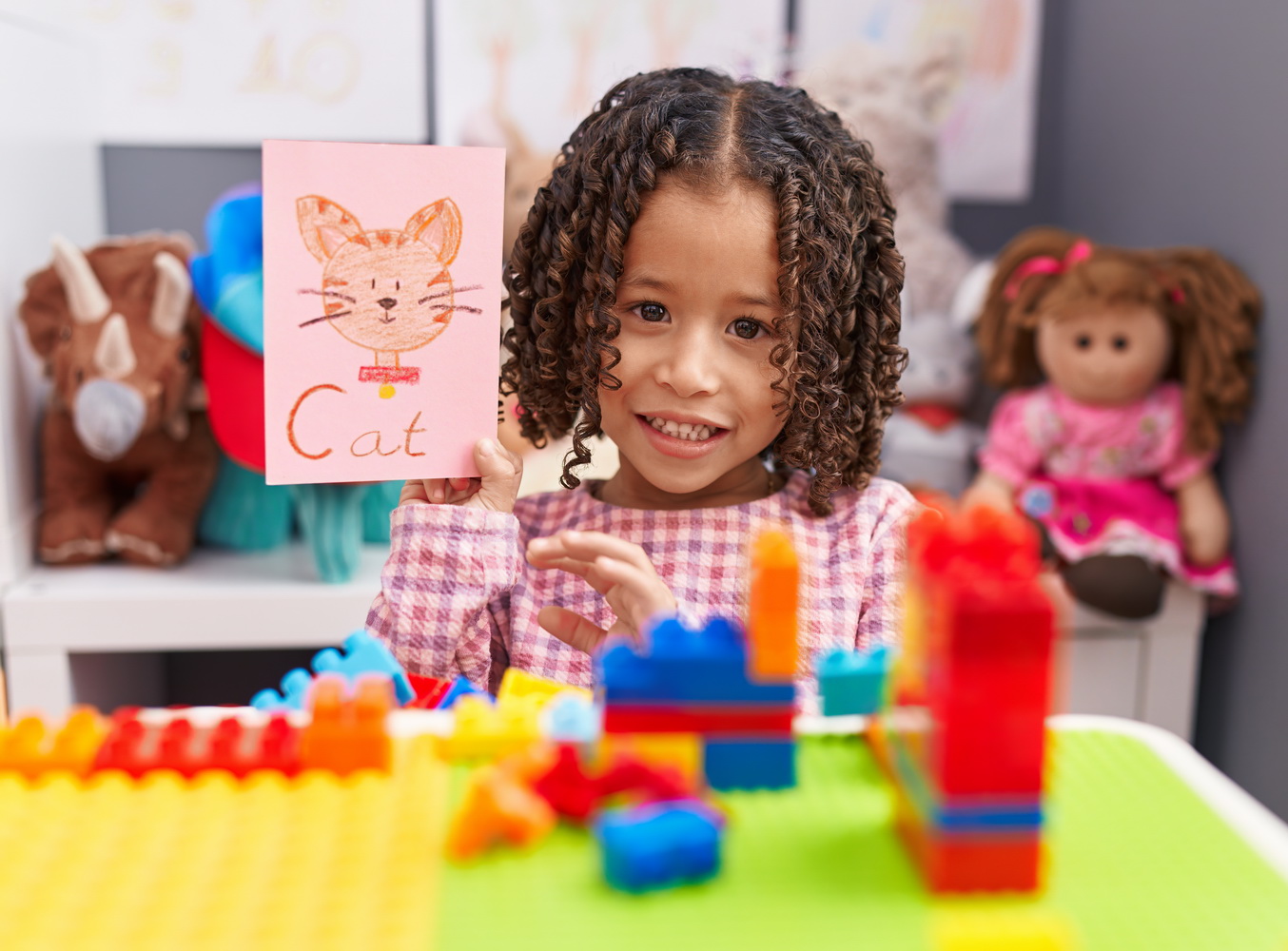Extra Challenge Tracing Shapes Worksheets Activities With Answers for Ages 3-6
4 filtered results
-
From - To
Discover a fun and educational way to enhance your child's fine motor skills with our "Extra Challenge Tracing Shapes Worksheets" designed specifically for ages 3-6. These engaging activities invite young learners to trace a variety of shapes, promoting cognitive development while improving hand-eye coordination. Each worksheet comes with an answer key, making it easy for parents and teachers to track progress. Ideal for home or classroom settings, these worksheets encourage creativity and help children gain confidence in their writing skills. Download them now to make learning shapes enjoyable and effective for your little ones! Perfect for preschool and kindergarten readiness.
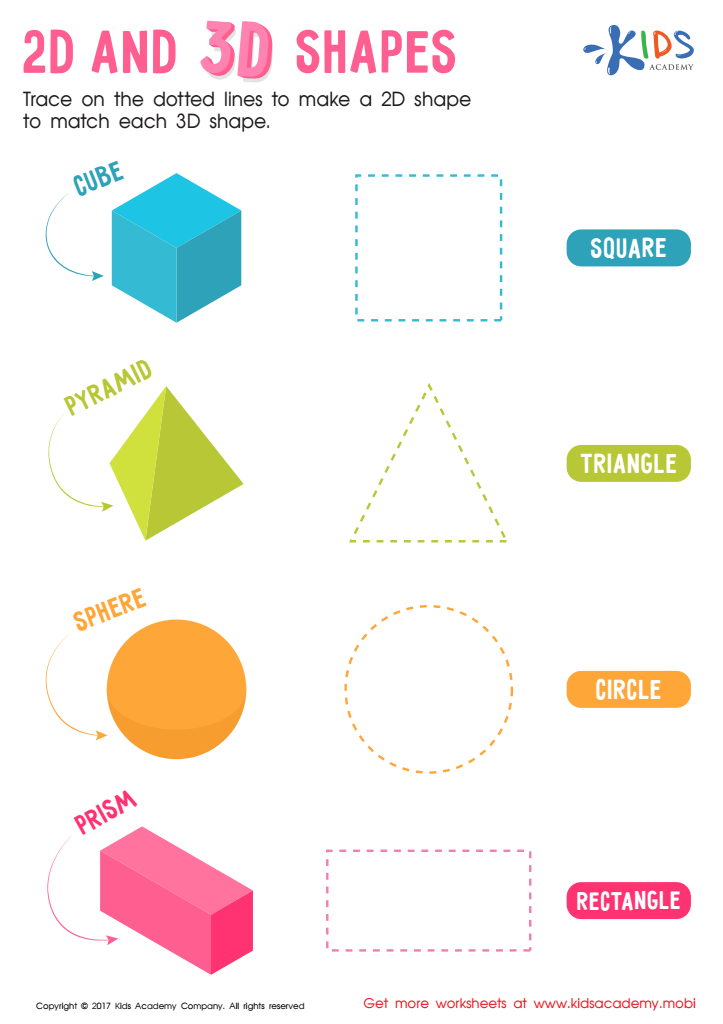

2D and 3D Shapes Worksheet
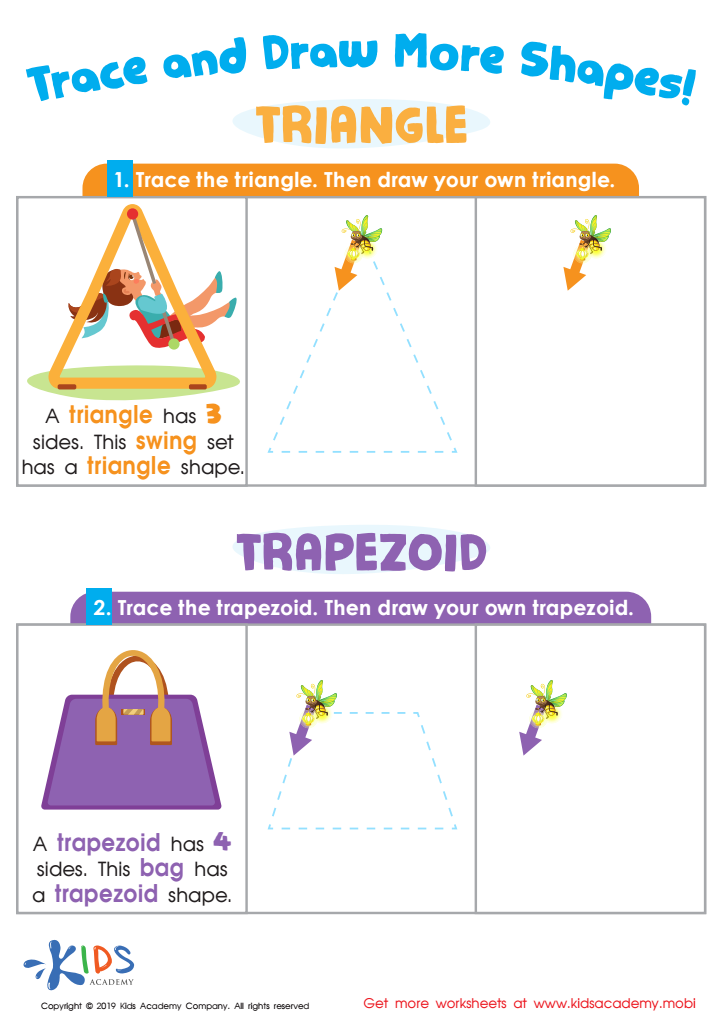

Trace and Draw More Shapes Worksheet
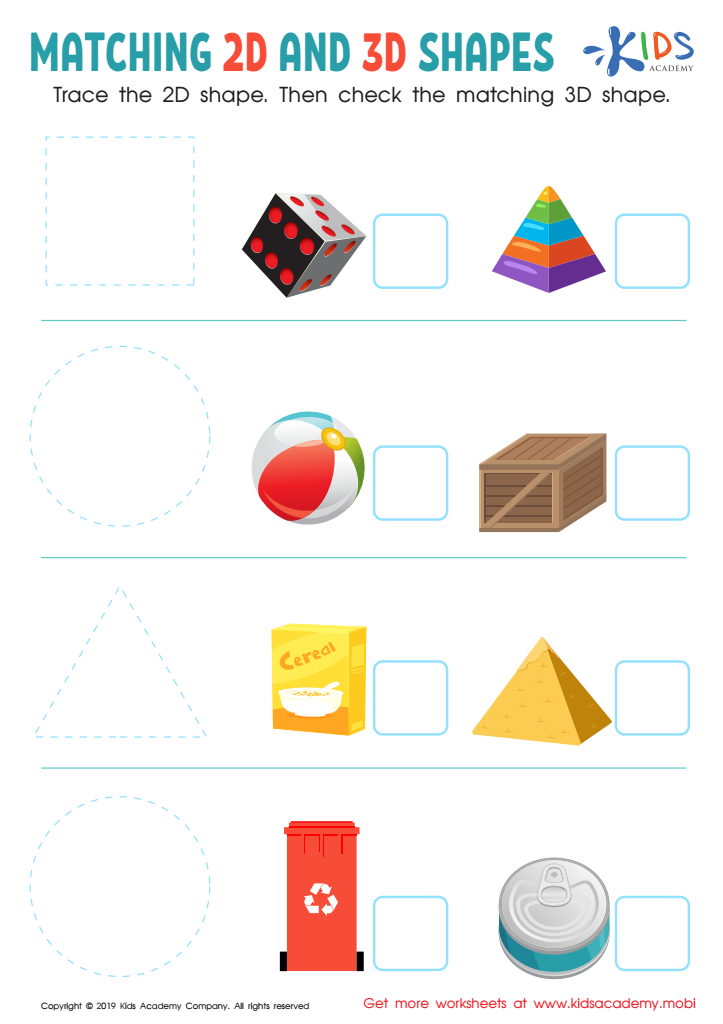

Matching 2D and 3D Shapes Worksheet
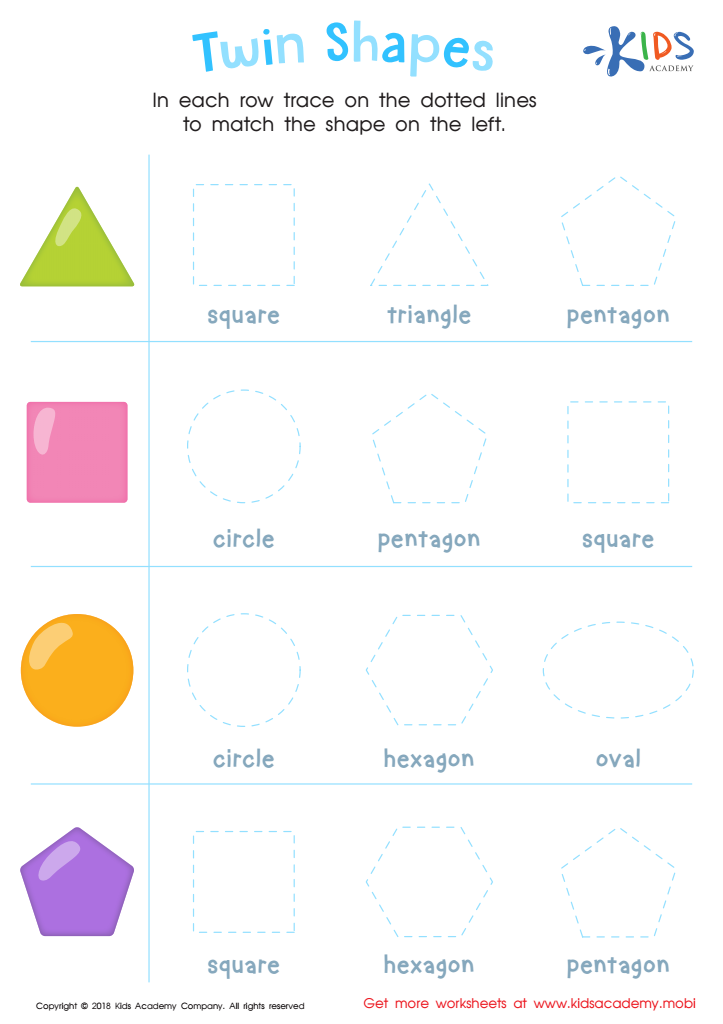

Twin Shapes Dot-to-Dot Worksheet
Parents and teachers should care about Extra Challenge Tracing Shapes Activities for children ages 3-6 because these activities play a crucial role in early childhood development. Tracing shapes enhances fine motor skills, which are essential for tasks like writing, drawing, and self-care. These activities help children develop hand-eye coordination and muscle control, laying a solid foundation for future academic skills.
Moreover, shape tracing introduces basic geometric concepts that are foundational in mathematics. When children familiarize themselves with shapes, they're engaging in critical pre-math skills like recognition, differentiation, and spatial awareness, which will benefit them later in school. Additionally, these activities encourage cognitive development, as children learn to concentrate and complete tasks independently, promoting a sense of accomplishment.
Providing answers to these activities ensures that parents and educators can guide children effectively, reinforcing positive learning experiences. It allows for immediate feedback, enabling young learners to assess their work and make corrections, boosting their self-esteem and confidence. In essence, Extra Challenge Tracing Shapes Activities are a valuable tool for aspiring young learners, supporting not just academic readiness but also overall growth in motor skills, cognition, and independence.

 Assign to My Students
Assign to My Students





